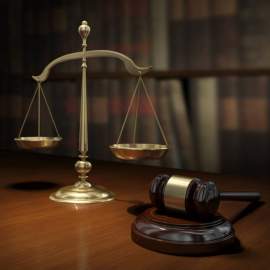
Texas v. Johnson

The Background of Texas v. Johnson (1989)
During the Republican National Convention of 1984 taking place in Dallas, Texas, Gregory Lee Johnson undertook an expression of protest in the form of setting fire to the American Flag. Johnson was an admitted member of a private institution that was comprised of individuals promoting the Communist movement; he enacted his nature of protest in order to presumably express his dissatisfaction with the Republican National Convention and Ronald Reagan. Upon incinerating the American Flag, he was subsequently arrested by the Dallas Police Department on the grounds that he had violated as statewide statute mandating the illegality with regard to the destruction of items and objects considered to be both ‘respected and venerated’; he was fined $2,000:
Although Johnson’s Appeal case took upwards of 4 years to be heard before the Supreme Court of the United States, it was eventually granted a hearing in 1989
The Case Profile of Texas v. Johnson
The following is a case profile of the legal trial eponymously titled ‘Texas v. Johnson’:
Date of the Trial: March 21st, 1989
Legal Classification: Administrative Law; this legal field associated with events and circumstances in which the Federal Government of the United States engages its citizens, including the administration of government programs, the creation of agencies, and the establishment of a legal, regulatory federal standard
Accused Criminal Activity: The following criminal activity and charges were cited by the State of Texas against Gregory Lee Johnson within the appeal brought forth subsequent to the initial ruling:
Johnson stated that his arrest resulting from his setting fire to the American Flag, which he had claim was a sign of protest in lieu of a sign of violence, was a direct violation of his 1st Amendment Rights; as an American citizen, the 1st Amendment both preserved and protected his right of free speech and expression
Johnson also disputed the nature of classification employed with regard to the determination of ‘venerated’ and ‘respected’, claiming that they were rooted in subjectivity in lieu of the public sector
United States Reports Case Number: 491 U.S. 397
Date of the Delivery of the Verdict: June 21st, 1989
Legal Venue of Texas v. Johnson: The Supreme Court of the United States
Judicial Officer Responsible for Ruling: Chief Justice William Rehnquist
Involved Parties: The following are the parties named with regard to their involvement in the Texas v. Johnson case:
Gregory Lee Johnson; Plaintiff - Texas v. Johnson
The State of Texas; Defendant - Texas v. Johnson
Verdict Delivered: The Supreme Court ruled that Johnson’s constitutional rights and civil liberties had been violated as a result of his arrest; the Supreme Court claimed that expression without illegality – or the intent to incite illegal recourse – is both protected and lawful under the Constitution
Associated Legislation with regard to Texas v. Johnson: The following statutory regulations were employed with regard to the Texas v. Johnson trial:
The provisions set forth within the 1st Amendment to the United States Constitution mandate the freedom of speech expression, which prohibits the unlawful banning, prohibition, and ceasing of unlawful censorship.; freedom of expression is an unalienable right afforded to every citizen of the United States of America – however, the stipulations within the 1st Amendment require that the nature of the expression in question exist in accordance with applicable legislature
NEXT: The Downfall of Saddam Hussein





















